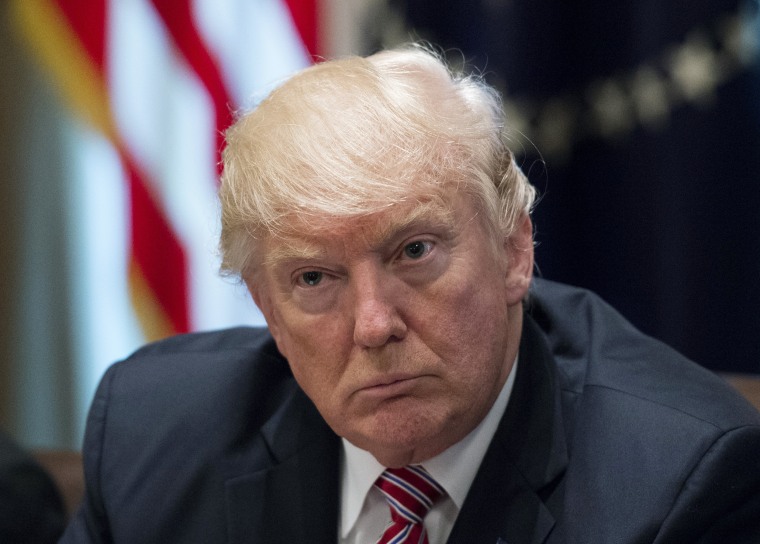President Donald Trump and Japanese Prime Minister Shinzo Abe confirmed in phone talks that they would step up pressure on North Korea in cooperation with South Korea, U.S. and Japanese officials said Monday.
The bilateral talks were aimed at confirming close cooperation among the United States, Japan and South Korea before a Group of 20 summit meeting to be held in Hamburg, Germany, later this week, the White House said in a statement.
The two leaders stressed that their countries are "ready to defend and respond to any threat or action taken by North Korea," according to the statement.
Deputy Chief Cabinet Secretary Koichi Hagiuda told the Japanese news agency Kyodo, meanwhile, that Abe praised Trump for sanctions the United States imposed last week on a Chinese bank and individuals accused of laundering money for North Korea.
Trump also talked by phone Sunday night with Chinese President Xi Jinping to discuss "the growing threat posed by North Koreas nuclear and ballistic missile programs," the White House said
Trump, who met with Xi in April in Florida, has said he is willing to work with China on trade issues but wants to see Beijing use its economic leverage to force North Korea to scale back its nuclear and ballistic missile programs, which are a threat to the United States, South Korea and Japan.
But Trump has become frustrated that China hasn't done more to pressure Pyongyang, and he has been considering moving ahead on trade actions.
Timeline: How Events in North Korea Have Unfolded Under Trump
Trump also called for a determined response to North Korea after talks with South Korean President Moon Jae-in in Washington on Friday.
North Korea and the rich, democratic South are technically still at war because their 1950-53 conflict ended in a truce, not a peace treaty. Pyongyang defends its weapons programs as necessary to counter U.S. hostility and regularly threatens to destroy the United States.
